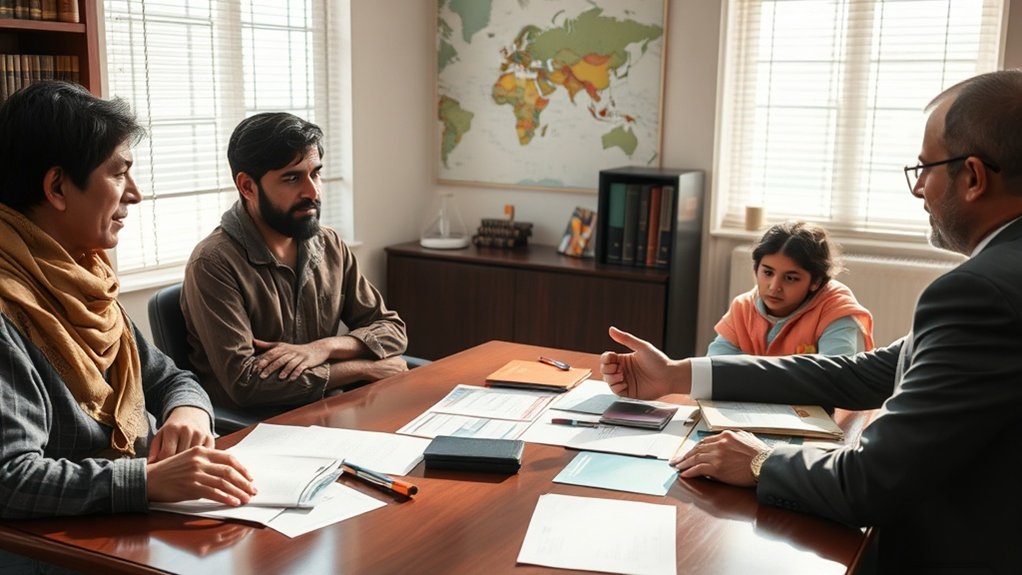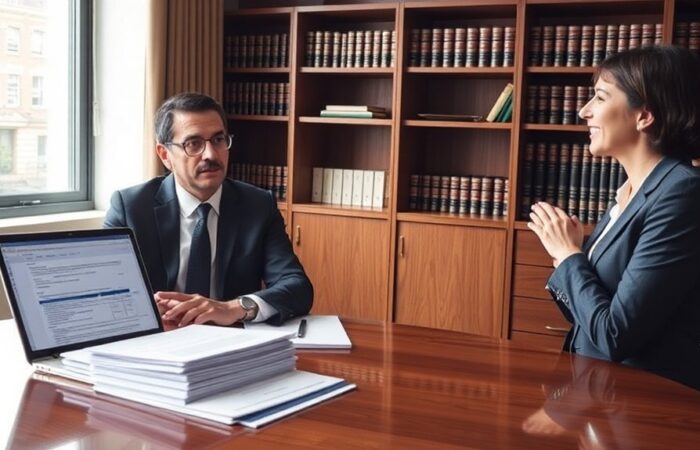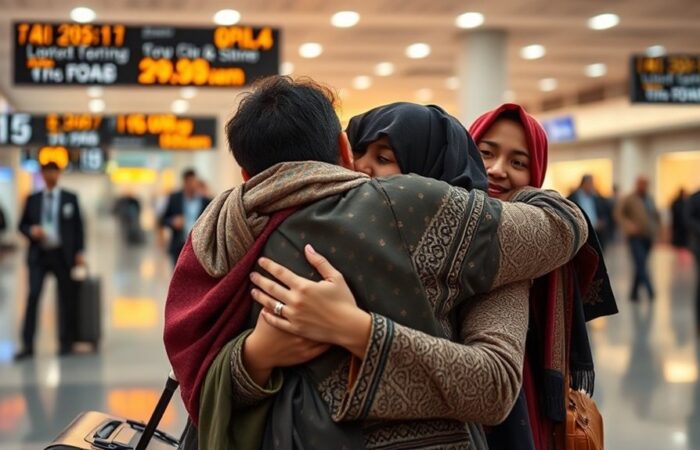When you’re confronted with a denial or long delay in securing a humanitarian visa as an Afghan applicant, it’s easy to feel overwhelmed by the complexity of immigration procedures. You might wonder what options you truly have and how to move forward effectively. There are legal remedies and practical steps that could make a difference in your situation—especially with the right guidance on your side. Let’s look at what you should know before making your next move.
Common Reasons for Afghan Humanitarian Visa Denials and Delays

Although many Afghans urgently seek humanitarian visas, you might find your application delayed or denied for various reasons. Often, incomplete paperwork or missing documents cause immediate setbacks, so it’s essential to double-check every requirement before submitting your application. Sometimes, authorities may question the authenticity of your supporting evidence or request additional proof of your circumstances. Incorrectly completed forms, inconsistencies in your statements, or translation errors can also lead to complications. Furthermore, if you have gaps in your travel or identity history, immigration officials might require further clarification.
Background security checks might uncover issues, especially if there’s a mismatch between your submitted information and government databases. Overwhelmed immigration departments also contribute to processing delays, especially during heightened demand. You might also face issues if you don’t clearly demonstrate the humanitarian need or urgency behind your request. Understanding these common reasons gives you a greater chance to identify and address potential problems before they impact your application. Consulting with a legal professional provides specialized guidance that can minimize errors and help ensure you satisfy all visa requirements.
The Impact of Prolonged Waiting Periods on Afghan Applicants
While waiting for a decision on your humanitarian visa, you might experience far more than just frustration. Each passing week without news can take a toll on your emotional well-being, family stability, and even your finances. You’re left in limbo, unable to plan a future or protect loved ones. The uncertainty erodes hope and can intensify anxiety. Complications grow greater when your safety is at risk or you need urgent medical, housing, or educational support.
Those dealing with extended visa delays may benefit greatly from professional support, which can help navigate the legal system and improve their chances for a timely solution.
Let’s break down the key impacts:
| Area of Life | Impact Example | Resulting Challenge |
|---|---|---|
| Emotional Health | Ongoing stress | Sleep loss, depression |
| Family Life | Uncertainty about safety | Disrupted family unity |
| Finances | Inability to work or plan | Money problems, debt |
| Daily Living | Barriers to housing, school | Unmet basic needs |
Understanding these consequences helps you advocate for faster resolution and support systems.
Legal Rights of Afghan Applicants Under Portuguese and International Law

You have the right to fair and equal treatment during visa processing, without discrimination based on your nationality or background. If your application is rejected, you’re also entitled to clear appeal procedures under both Portuguese and international law. Let’s explore what these protections mean for your case. In addition, working with specialized legal assistance can significantly increase your chance of navigating the immigration process successfully and prevent unnecessary delays or denials.
Non-Discrimination in Visa Processing
Recognizing the acute challenges faced by Afghan nationals seeking protection, Portuguese and international law both prohibit discrimination in visa processing. You have the right to expect equal and fair treatment, regardless of your nationality, ethnicity, religion, or gender. Portuguese authorities must process your humanitarian visa application impartially, following established criteria, not personal bias or prejudice.
International conventions—like the Refugee Convention and the European Convention on Human Rights—reinforce this obligation, binding Portugal to treat you justly. If you feel you’ve been treated unfairly compared to applicants from other countries or backgrounds, that may indicate a violation of your legal rights. Understanding this principle empowers you to remain vigilant throughout the process, knowing that authorities can’t lawfully use discriminatory practices to deny or delay your application. Applicants should also ensure that they maintain proper immigration documentation throughout the process, as this plays a critical role in the fair review and outcome of their visa applications.
Appeal Procedures for Rejected Applications
Despite the protections against discrimination in visa processing, some Afghan applicants still face rejection of their humanitarian visa requests. When you receive a denial, you have legal avenues you can pursue under both Portuguese and international law. It’s important to act quickly and know your rights throughout the process. Appealing gives you another opportunity to present your case and challenge the initial decision. Here’s what you should keep in mind:
- Request written reasons for your rejection, as this will guide your appeal.
- Submit your appeal within the legal time limit—missing deadlines may end your chances.
- Gather supporting evidence to address the reasons for refusal.
- Seek legal representation to strengthen your case.
- Consider international human rights protections that may support your application.
For the best chances of success, consult with an immigration lawyer with expertise in complex immigration law to ensure your application meets all legal requirements and deadlines.
Effective Documentation and Evidence for Visa Applications
While preparing your Afghan humanitarian visa application, assembling clear and convincing documentation is crucial for success. Begin by gathering evidence that directly supports your claim—this may include official identification documents, proof of employment or education, and evidence of persecution or threats, such as police reports or written testimonies. Don’t rely on a single type of document; instead, present a comprehensive file that demonstrates your credibility and situation.
Whenever possible, translate non-English documents into the visa authority’s preferred language and have translations certified. Consistency matters, so check that all dates, names, and details across documents match exactly. If you’re submitting letters from organizations or individuals, ask for contact information and official letterhead to enhance authenticity. Supporting photographs or digital evidence, like text messages or emails, can further strengthen your case.
Organize everything logically. Well-indexed files make it easier for officers to review your application and understand your circumstances, increasing your chances of approval. For many applicants, specialized legal support can be decisive in avoiding errors and delays as they navigate the complex Brazilian immigration process.
Appeal Options and Legal Remedies After a Visa Refusal

If your Afghan humanitarian visa application faces refusal, you still have options to challenge the decision and seek remedy. It’s essential to act promptly and understand the specific reasons behind the refusal. You can use several legal mechanisms to appeal or request further review. Start by reviewing the refusal notice you received; it details the grounds for the decision. Clearly understanding these reasons will help shape your next steps and arguments. Appeal processes and remedies differ by country, but you can typically pursue the following actions:
- Submit a formal appeal if the law allows it, addressing each reason for refusal.
- Request a reconsideration with additional supporting evidence or clarification.
- File a judicial review to challenge the legality or procedure of the decision.
- Seek consular follow-up for further explanation or diplomatic intervention.
- Consult a qualified immigration lawyer to advise on tailored strategies and improve your chance of success.
Having personalized legal support during these steps increases your likelihood of reversing a denial and ensures you follow all deadlines and procedures correctly.
How Vieira Braga Advogados Supports Afghans Facing Administrative Barriers
Navigating administrative hurdles can feel overwhelming, but Vieira Braga Advogados simplifies the process for Afghans seeking humanitarian visas. When you face confusing bureaucracy, language barriers, or unclear requirements, their experienced legal team steps in to clarify procedures and highlight your rights. You’ll get clear explanations of forms, documents, and deadlines, so nothing gets lost or delayed due to misunderstanding.
Vieira Braga Advogados doesn’t just passively advise—you’ll receive proactive guidance. They communicate directly with immigration authorities on your behalf, helping to resolve bottlenecks and speed up stalled applications. If your case encounters an unexpected obstacle, such as missing paperwork or inconsistent communication from officials, the firm intervenes quickly to find solutions.
Through their tailored support, you won’t have to navigate complex administrative systems alone. You’ll have advocates ready to address every challenge, ensuring your humanitarian visa application gets thorough attention and the best possible chance for success. The firm also ensures compliance with immigration laws so that every step of your application fully meets legal requirements and avoids unnecessary delays or denials.
Frequently Asked Questions
How long to wait after a visa denial?
The waiting period varies by country and type of visa; typically, applicants can reapply immediately or after a few months, depending on the reason for denial and local regulations.
Is the Brazil humanitarian visa open for Afghans?
Yes, Brazil continues to offer humanitarian visas for Afghans, allowing entry, residence, and work under special migration programs.
How Long Does the Humanitarian Visa Process Usually Take for Afghans?
You can usually expect the humanitarian visa process for Afghans to take anywhere from a few months to over a year, depending on the country and specific circumstances. Processing times vary due to security checks, document reviews, and high demand. You should prepare all documents carefully and follow any updates from the authorities. If you experience significant delays, don’t hesitate to contact the issuing office for clarification or updates on your application status.
Are There Any Application Fees for Afghan Humanitarian Visas in Portugal?
Yes, you’ll need to pay application fees when you apply for a humanitarian visa in Portugal, even as an Afghan applicant. The exact amount can vary, so it’s important to check the fees listed by the Portuguese consulate or embassy where you’ll submit your request. Don’t forget, if you’re facing financial hardship, you might be eligible for reduced fees or exemptions. Always keep your receipts and verify payment instructions carefully.
Can Family Members Be Included in the Same Humanitarian Visa Application?
Yes, you can include family members in the same humanitarian visa application. When you apply, you’re usually allowed to list your spouse and dependent children, making the process easier and keeping your family together. Make sure you gather all required documents for each family member and clearly indicate their relationship to you. Applying collectively can simplify processing, but you’ll need to meet all official requirements for each person included in your application.
What Languages Are Accepted for Supporting Documents During the Application Process?
You’ll generally need to provide your supporting documents in either English or the official language of the country you’re applying to. If your documents are in another language, you must get them professionally translated. Make sure the translation is accurate and certified, as authorities require this for authenticity. It’s smart to check the specific embassy or consulate’s guidelines, so you won’t miss any language or formatting requirements during your application process.
Does Receiving a Denial Impact Future Visa Applications to Portugal?
Yes, receiving a denial can impact your future visa applications to Portugal. Immigration authorities may look at your previous records and denials could raise red flags, leading to extra scrutiny of your new application. However, it doesn’t mean you’re automatically disqualified. If you address the reasons for the previous denial and provide strong, corrected documentation, you’ve still got a fair chance. Always be honest and thorough when reapplying to improve your chances.
Conclusion
If you’re facing a humanitarian visa denial or delay, don’t lose hope. Vieira Braga Advogados understands what you’re going through and stands ready to guide you through each challenge. By working with their dedicated team, you’ll have the right support to gather evidence, meet deadlines, and address any reasons for refusal. With their advocacy and expertise, you’ll boost your chances of success and move closer to starting a safer, more stable future in Portugal.






